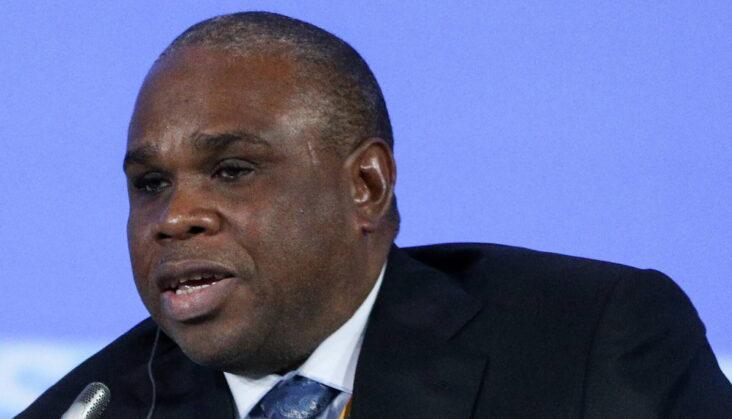Africa-Press – Mauritius. Data drives business decisions.Companies operating in an increasingly globalised market rely on accurate data to analyse demand trends, understand their competitors, and identify potential partners along their supply chains.
However, many African companies, in particular small and medium-sized enterprises (SMEs), are losing the opportunity to participate in regional and global supply chains due to not making the necessary information available for corporate due diligence processes.
Perception of risk has long constrained investment in Africa, with investors lacking the information needed to make investment decisions and gain the full picture of local businesses’ operations.
The impact of this on Africa’s development cannot be understated. African SMEs face a $330bn financing gap which more accessible data could help to bridge. There is an enormous financing gap in Africa, and development of the continent depends on reducing this gap.
As well as stymying business growth, this has ramifications across African economies as SMEs make up the backbone of businesses on the continent, providing roughly 80% of jobs and contributing substantial proportions of GDP throughout the region.
Samia Tnani, Head of Credit at AfricInvest, one of the continent’s most prolific investors, put it succinctly when she said: “There is an enormous financing gap in Africa, and development of the continent depends on reducing this gap”.
African companies – from SMEs to large-scale corporates – have the opportunity to reduce Africa’s risk perception problem by making more information about their companies available.
Digital innovations in the due diligence space have made it easier than ever for companies to make their data accessible to partners and stakeholders in a secure online environment.
Afreximbank, for example, is building the continent’s largest repository of due diligence data on its MANSA platform to facilitate increased trade across Africa.
Maureen Mba, Head of MANSA, told Asoko Insight recently that the project is foundational to the bank’s mandate to transform African trade: “Now we have the African Continental Free Trade Area (AfCFTA), but it cannot work if we don’t have a portal like this that will provide information and then allow that free flow of goods and services across the continent.
As the AfCFTA opens a market of 1.3 billion people and a combined GDP of $3.4trn, SMEs must be integrated into new trade opportunities, both to meet the demands of this growing market and to meet the potential economic and development gains promised by the world’s largest trade bloc.
As well as transparent corporate data, African SMEs with systems in place to ensure that they are adhering to global compliance standards will be more attractive business partners for international companies with stringent compliance requirements across their supply chain.
Governance is more than just a buzzword in today’s business environment, where ESG concerns play an increasingly prominent role in trade and investment decisions.
Indeed, African companies that can demonstrate high compliance standards and have appropriate processes in place are more likely to be first in line with investors who are looking for profitable opportunities but who want to ensure their shareholders’ resources are safe from unnecessary risk.
SMEs with compliance processes are also more likely to secure financing; according to research from AfDB and Afrexim, 16% of SME applications for trade finance in 2015-19 were declined because they lacked know your customer (KYC) and anti-money laundering (AML) compliance, both factors which can be identified and rectified through completing due diligence procedures.
From money laundering to tax evasion and capital flight, Transparency International estimates from 2019 suggest that African countries lose approximately $50bn annually due to illicit financial flows alone, diverting much-needed resources that could be used towards national development.
The cost of corruption is even higher; according to AU estimates, Africa loses $140bn annually due to corruption. The World Bank also estimates that corruption increases the cost of doing business on the continent by as much as ten per cent. Africa’s private sector has an instrumental role to play in creating a more ethical ecosystem for business operations.
Through working with African business leaders to build and maintain an ethical business culture, the Ethics 1st initiative, led by the Center for Private Enterprise (CIPE), helps African SME owners understand the value of corruption risk mitigation and put frameworks in place to support effective governance.
Lola Adekanye, CIPE Africa’s project lead for Ethics 1st, told Asoko Insight that the platform aims to lower barriers for SMEs by making compliance training affordable and relevant to their businesses to build capacity while at the same time incentivising this effort by facilitating access to trade and investment opportunities.
“What we’re trying to do is make sure that businesses that go through the pains of setting up sound compliance systems and demonstrating that their leadership is committed to these standards, we try to make them as accessible to investors and large multinationals that are onboard with us about promoting ethics and integrity in Africa, so that they are the first ones to get the benefits of business opportunities on the continent,” she said.
The presence or lack of compliance and due diligence data directly impacts trade finance, meaning that maintaining ethical business practices is more than just a matter of “doing the right thing.
” Compliance is essential for SMEs to receive the investment and funding they need to grow their businesses.
Indeed, to the more than 40 million SMEs across Africa, building compliance capacity and making due diligence data accessible makes the difference between surviving in local markets today versus integrating into regional and global supply chains tomorrow.
For More News And Analysis About Mauritius Follow Africa-Press







